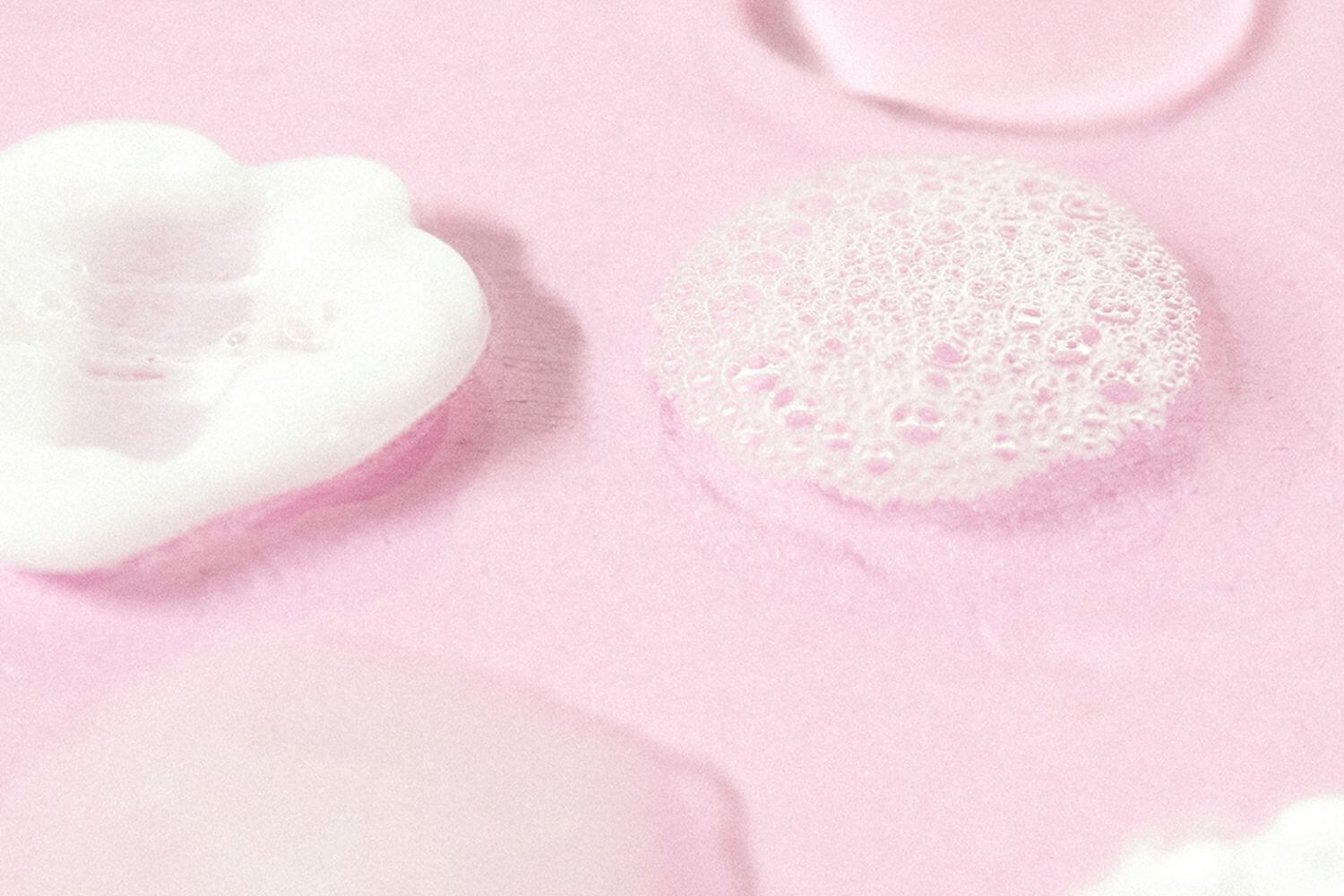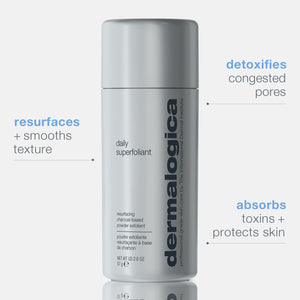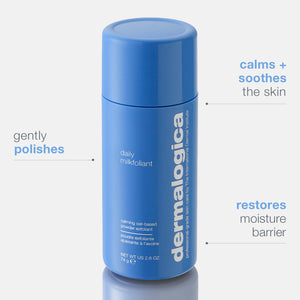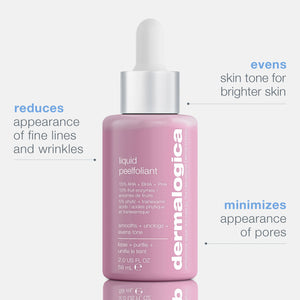5 min read
Physical vs. chemical skin exfoliation. what’s the difference?
Learn the differences between physical and chemical exfoliation and why it matters for acne-prone and sensitive skin.

Ever dealt with dullness and uneven skin tone? Not sure how to handle your breakouts and texture? Want to speed up your cellular turnover rate resulting in baby fresh skin? Same. Stay tuned because were talking all things exfoliating- which is right for your skin type and how this necessary step is essential for achieving a radiant complexion.
let's get physical
Ok, we’re all guilty of frantically scrubbing our faces raw in an effort to erase any and all signs of being human (and actually having a blemish) right? I’ll go ahead and take one for the team here. I definitely have. Much to my surprise it did little to nothing. What you probably didn’t realize is that most of those scrubs can be damaging & actually make your breakouts worse - causing micro-tears in your skin. aka damaging your epidermis ➡ which leads to inflammation ➡ which leads to more breakouts which = no bueno. I know, I feel the betrayal too. If you’re breaking out, chances are you’re already pretty inflamed and should steer clear of any sort of physical manipulation of your skin.
Don’t get me wrong, I’m a huge fan of exfoliating. Just maybe not that way, ya feel me?
For this exact reason physical exfoliant’s are becoming less and less popular nowadays - but physical exfoliants aren’t all bad. Their job is to literally lift away dead skin cells solely using friction - makes sense. But remember what I said about manipulation, right? Less is more (especially for my acne peeps). If you’re team physical, it’s really important to make sure your scrub doesn’t contain any sort of nutshells or unpolished bead and check to make sure they are bio-degradable because um hello? Those beads are plastic and end up in our beautiful oceans, and nobody wants to be responsible for that.
Good news is there are still some great physical exfoliants that don’t contain any harsh ingredients. Dermalogica's Daily Microfoliant for example is gentle enough to exfoliate for everyday use as part of your skin care routine. Its physical contribution is a rice based powder so you can rest assured this won’t be damaging your beautiful money maker or our lovely planet.
a chemical romance
We're all familiar with chemical ingredients like salicylic acid and benzoyl peroxide. They’re our best friends and our pimples worst nightmare and we’d be lost without them, agreed… but did you know these ingredients can be used for more than just a spot treatment? This is a some-what new concept for some, but this actually has been around for a while. Chemical exfoliants take these powerful ingredients to a new level by lowering the percentages of active ingredient and making them gentle enough to use every day. Not just on targeted areas, but all over the face.
By now you may have heard of the terms AHA & BHA. I’ve been a fan of these guys for quite some time and they tend to be found in most chemical exfoliants. Alpha Hydroxy Acid (AHA) is usually derived from sugar cane and helps to gently slough off dead skin cells and also helps with collagen production. Also included in the AHA family are Lactic acid, which can help with sun damage and those pesky dark spots pimples can leave behind, and Glycolic Acid, which helps treat pimples as soon as they begin to form. Beta Hydroxy Acid (BHA) usually contain salicylic acid which penetrates deep into the pore, clearing it of any clogs. It’s also tough enough to cut through oil. AHAs & BHAs are used together so you’re getting the benefits of both, which can be hard to find in a physical scrub.
Queue TLC’s “No Scrubs" - but like I said I’m not totally opposed to physical scrubs. Chemical exfoliants just have so much more to offer and hello! No manipulation, so green light for acne prone skin.
I get it, the term “chemical” can seem a little scary… but when using the correct product, chemical exfoliation is actually less harsh on your skin than the physical scrubs. Meaning: if you’re acne prone, you definitely want this in your life. And unlike physical scrubs, chemical exfoliants can have multiple benefits like clearing breakouts, brightening your overall complexion and helping with texture (those annoying tiny bumps).
what to remember about physical & chemical exfoliation
1. Physical scrubs aren’t always Ideal for sensitive skin or acne types.
2. Physical scrubs use friction to lift away dead cells.
3. Un-polished beads or walnut shells can cause micro-tears so make sure your physical scrubs don’t contain those!
4. Over scrubbing can lead to inflammation.
5. Chemical exfoliants are ideal for active acne- no manipulation=less inflammation.
6. Chemical exfoliants can also help to even skin tone and brighten complexion even aid in lightening sun damage.
7. Most chemical exfoliants can be used daily vs. once or twice a week with a physical.
8. Chemical exfoliants are left on the skin & offer easier application.
If you're looking for a chemical exfoliant, try Dermalogica's Liquid Peelfoliant. Liquid Peelfoliant is a professional-grade at-home peel that is gentle for all skin types and helps smooth the appearance of fine lines while visibly minimizing pores.







